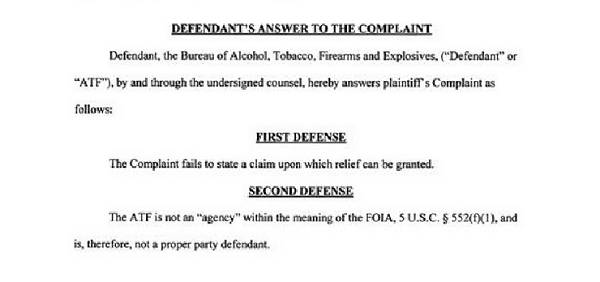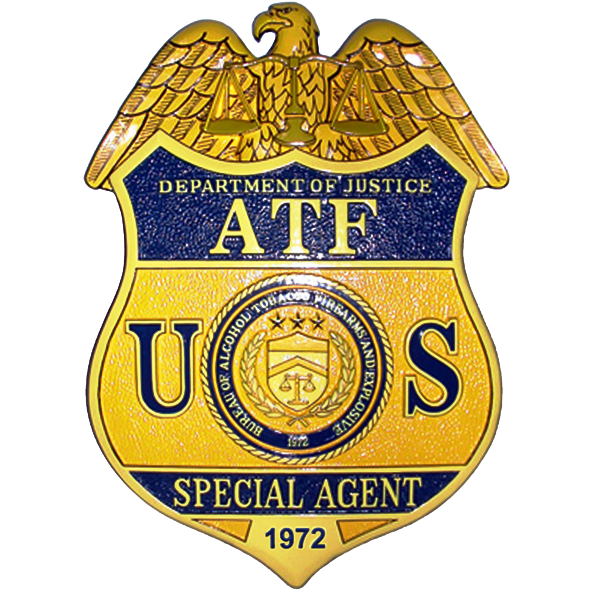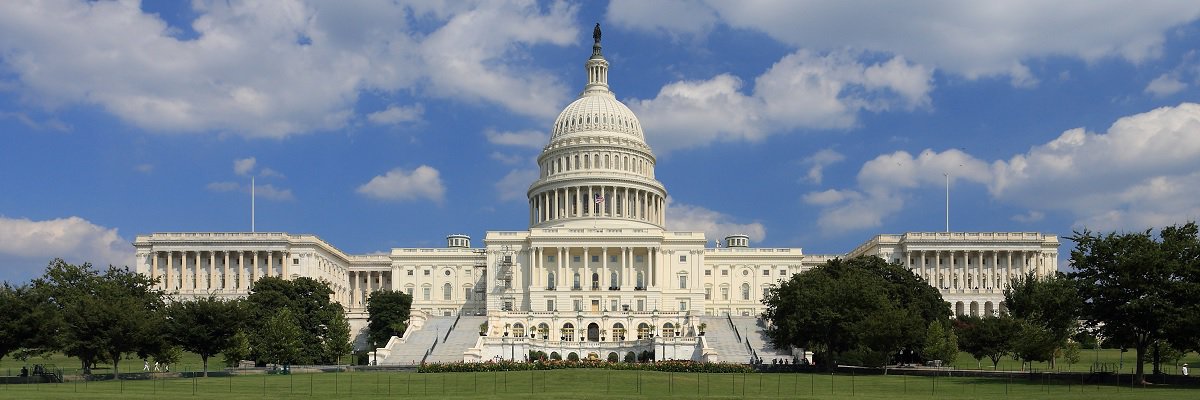You may have heard that the Bureau of Alcohol, Tobacco, Firearms and Explosives has an identity crisis, at least when it comes to being sued. Federal lawyers claim that the ATF is not, in fact, an “agency”, but rather a “component” of the Department of Justice.
Such legal identity bending are odd, given that the ATF describes itself as nothing less than an agency in so many other contexts.
In response to a Freedom of Act lawsuit filed in June by gun rights advocates, federal counsel sought to draw a distinction about the ATF’s legal status.

“The ATF is not an ‘agency’ within the meaning of the FOIA [....] and is, therefore, not a proper party defendant,” the response argues.
A bit further down, the memo asserts that “ATF is a component of the United States Department of Justice.”
The Freedom of Information Act requires “each agency” of the federal government to release documents upon request. An accompanying statute defines “agency” as “each authority of the Government of the United States, whether or not it is within or subject to review by another agency.”
The second statute explicitly excludes Congress and the federal judiciary from its definition of bodies subject to FOIA, as well as government entities within the District of Columbia and U.S. territories.
… so is the ATF an agency?
A casual visitor to the ATF’s FOIA website could be excused for jumping to conclusions on this point. The page thrice classifies the ATF as an “agency.”

“Like all federal agencies,” the website helpfully advises, “the Bureau of Alcohol, Tobacco, Firearms and Explosives (ATF) generally is required under the Freedom of Information Act (FOIA) to disclose records requested in writing by any person.”
“However, agencies may withhold information pursuant to nine exemptions and three exclusions contained in the statute. The FOIA applies only to federal agencies and does not create a right of access to records held by Congress, the courts, or by state or local government agencies.”
Navigate over to the ATF’s “About” page, and you’ll find self-identification in kind.

“ATF is a unique law enforcement agency in the United State Department of Justice,” the page begins. “Agency” is the seventh word.
The ATF often presents itself as an agency in regulatory notices, as well. Take, for instance, this October 2014 publication in the Federal Register, where the ATF proposed a change in explosives permitting procedures. The proposed revisions, “reflect ATF’s position as a regulatory and enforcement agency under the Department of Justice,” the notice reads. Not to belabor the point, but the ATF’s law enforcement employees are called “Special Agents.” Check the badge.

But the ATF claims its status as a subcomponent within the Justice Department makes it an improper defendant for FOIA lawsuits.
“The only proper defendant under the the Freedom of Information Act is a federal agency,” replied ATF spokesperson Corey Ray. “We are a component of the Department of Justice just like the other sister components such as FBI, DEA, and U.S. Marshals.”
But officials from the ATF said that the federal government was not seeking dismissal of the case based on the agency-versus-component distinction.
“It is standard litigation language,” added Ginger Colbrun, ATF public affairs chief, before referring all further questions to the US Attorney’s Office.
Federal courts seem to disagree with the ATF’s position.
The FBI asked to be removed from a 2012 FOIA lawsuit on the grounds that it was a “component” of the Justice Department, rather than an “agency” subject to FOIA itself. The judge denied their motion based on a plain text reading of the statute, as well as the very nature of the FBI.
“First, it would be difficult to argue that a ‘threat-focused national security and law enforcement organization [that is the] principal investigative arm of the U.S. Department of Justice and a full member of the U.S. Intelligence Community’ is not an ‘authority’ of the U.S. Government,” the judge wrote, citing the “About” page on the bureau’s website.
The judge also noted that the FBI had litigated “numerous FOIA cases in its own name,” including before the Supreme Court.
In another 2012 ruling involving the Bureau of Prisons, another Justice Department entity, a federal judge in the District of Columbia determined that “the weight of authority is that subcomponents of federal executive departments may, at least in some cases, be properly named as FOIA defendants.”
It’s unclear why the ATF and fellow Justice Department components are throwing this argument against the wall. But it seems that you can still sue the ATF under FOIA. No matter what it calls itself.
Image via @ATFHQ




